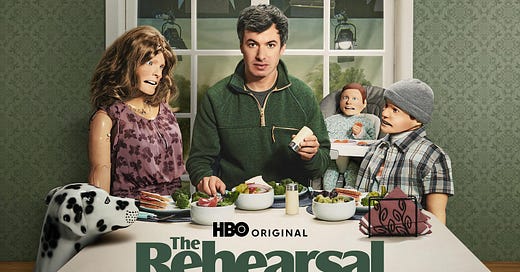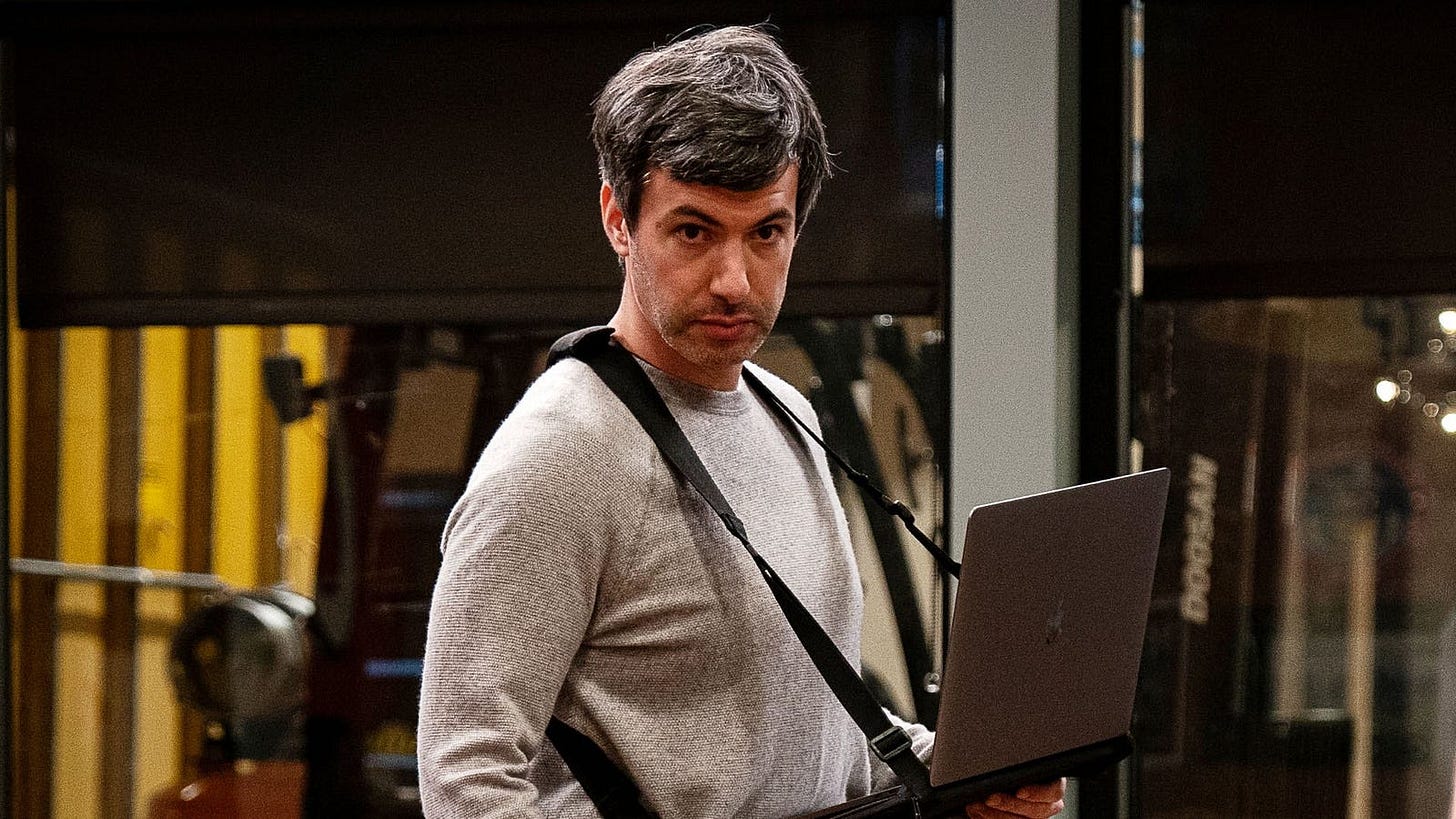The new season of Nathan Fielder’s The Rehearsal just started airing a couple weeks ago — and already, all the queer people I know are talking about it. There’s a queer obsession with The Rehearsal (and really, with Nathan Fielder’s work in general) — one that has fascinated me for a long time. Queer people are undeniably drawn to his work, almost inexplicably so. It really makes no sense — his shows are not explicitly queer, and yet there’s something about him that seems to really resonate with queer and trans people.
It’s hard to explain what exactly is so queer about it. Even from the first season — Fielder, despite not being queer himself, and actually pushing several heteronormative (or at least, seriously heterosexual) storylines, has become a favorite among almost all the queer people I know. So what exactly is so queer about The Rehearsal?
Fielder’s method of “rehearsing” interactions — whether the everyday phone call or high pressure situations, feels very resonant to me, and to many of the queer people I know. Coming out as queer is one example, a hard conversation that perhaps could be softened with the comfort of rehearsing it in a similar manner. And in many ways, those of us who have to “come out” more regularly, upon meeting or getting to know people, perhaps just the simple act of repetition feels like a rehearsal — like life is a rehearsal for more life.
In season one of The Rehearsal, Nathan Fielder attempts to help a man named Patrick who is having trouble getting his inheritance from his late grandfather, because his family thinks he is dating a “gold digger.” In order to prepare him to confront his brother, the executor of his grandfather’s will, Nathan has the man rehearse the conversation, over and over again, with an actor. But in order to create real emotional stakes for the rehearsal, Fielder creates a fake situation that will feel real, with almost the exact stakes, thus transferring the emotions Patrick feels toward his brother onto the man playing his brother in the rehearsal. Almost like a combination of Uta Hagen’s theory of transference with the “Method acting” technique. This struck me as inexplicably queer to me — not simply because it was hilariously theatrical, but because Fielder is so willing to think outside of the box in order to find solutions. There is something almost innately queer in finding places of prior failure and looking to solve them, however strange those solutions may be.
In the new season — at least, in the first episode — Fielder seems to be employing a similar approach. This season seems to be focusing on plane crashes, and trying to prevent future crashes by “rehearsing” conversation between pilots and co-pilots, so as to improve communication and willingness to speak up — for co-pilots in particular. The circumstances are actually quite fascinating and obviously well researched by Fielder and his team. By the end of the first episode (spoilers ahead!), Fielder manages to convince a copilot to confront his girlfriend on his suspicions that she’s cheating on him. But the catch is, Fielder has them have this conversation in the plane constructed for rehearsals. Thus, the emotion from the conversation, and the co-pilot’s nervousness to confront his girlfriend on his suspicions, is able to translate into real emotional stakes in the cockpit. It is brilliant and deranged and totally hilarious — as most of his work is.
Fielder is incredibly aware of the ways in which we are all performing, all the time. I think many queer people familiar with Judith Butler’s theory of Gender Performativity also resonate with Nathan’s work, because he is also so clearly aware of his performance of gender (and sexuality) — something that can be really rare in cisheterosexual people, especially men. The fact that he has such a big platform and is able to put so much money and HBO resources to a whole show centered on the exploration of human performance — regular human performance of everyday lives — thus feels quite queer.
Additionally, all of Fielder’s work seems to center on the idea of reality — what is real and what is not, and how we construct both those things. Even in his (completely scripted) show The Curse (2023) with Benny Safdie and Emma Stone, he plays heavily with the idea of reality and the construction of reality TV and its storylines. In other words, he is always trying to screw with his viewers’ heads, making them question what is real and what is not — or if it even matters. Is that not inherently queer? The question of reality, and of constructing a reality and its implications, feels to me like an innately queer question, one me and all my friends are grappling with at all times. And there’s something undeniably fun about seeing a successful comedian who is not queer ask those same questions in such huge ways.
The Rehearsal is available to watch on Max, with new episodes every Sundays at 10:30 PM EDT.
About the Author
Ethan Katz is third year at Oberlin College in Oberlin, OH, where he is studying creative writing & theater. He is grateful to have been introduced to the opportunity to write for Matthew’s Place through the Be a Friend Project.






